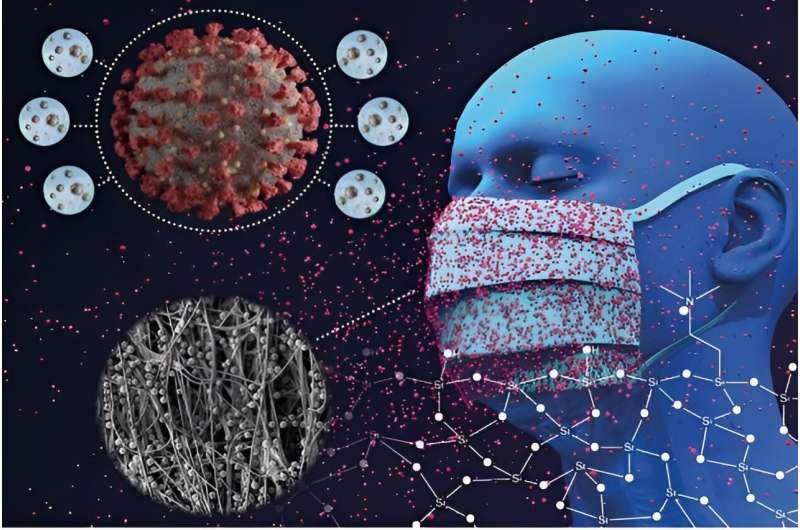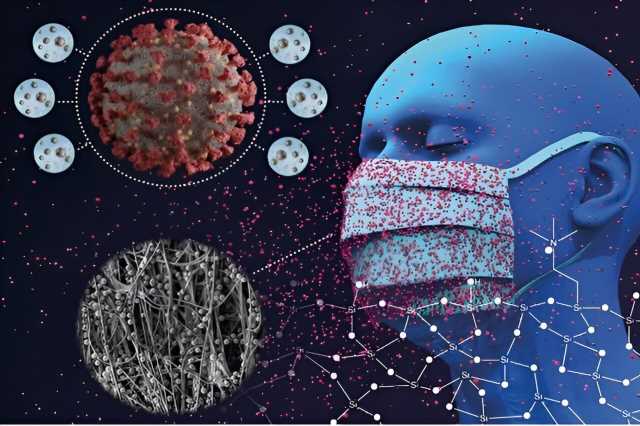
A research team at the University of Liverpool has developed a new material that captures coronavirus particles and could transform the efficiency of face masks and other filter equipment to stop the spread of COVID-19 and other viruses.
In a paper titled “Attaching protein-adsorbing silica particles to the surface of cotton substrates for bioaerosol capture including SARS-CoV-2” published in the journal Nature Communications, the team showed that the new material used in a conventional face mask was approximately 93% more efficient at capturing proteins, including coronavirus proteins, with little impact on breathability.
The University of Liverpool scientists behind the new material are Professor Peter Myers, a research leader in chromatography, and Dr. Simon Maher, a mass spectrometry expert. They had been working together on high performance liquid chromatography processes where proteins “stick” to the surface of the chromatographic support materials.
During the pandemic, Professor Myers had a “eureka” moment when he realized that reversing this process would provide a way to absorb proteins, specifically the protruding S1 spike protein which covers the outer lipid membrane of the SARS-CoV-2 virus.
Working together, the team from the University’s Department of Chemistry and Electrical Engineering and Electronics, “re-tuned” the surface of the spherical silica particle they used for chromatography to make the surface very sticky for the COVID-19 S1 spike protein.
At the same time, they increased the porosity of the silica particle to give it a very large surface area of 300 m2 per gram, which is approximately the same area as a tennis court. Furthermore, they increased the internal volume of the silica sphere to provide a large capacity to “capture” the virus.
The new material is at proof of concept stage and the team has shown it works in face masks in addition to air filters such as those used in airplanes, cars and air conditioning.
The group, which includes the Liverpool School of Tropical Medicine, also developed a method to attach the sticky particles onto the surface of a conventional face mask.
Professor Myers said, “This proof of concept research has only scratched the surface and while COVID-19 is no longer a global threat to our health, this material has the potential to be used in a wide range of applications. Our research team is looking at developing more advanced ‘sticky’ surfaces for a variety of bioaerosols including the new COVID variant BA.2.86 as well as influenzas and other deadly viruses such as Nipah.”
More information:
Kieran Collings et al, Attaching protein-adsorbing silica particles to the surface of cotton substrates for bioaerosol capture including SARS-CoV-2, Nature Communications (2023). DOI: 10.1038/s41467-023-40696-x
Journal information:
Nature Communications
Source: Read Full Article
